
JHEP Reports
Scope & Guideline
Fostering collaboration for groundbreaking health solutions.
Introduction
Aims and Scopes
- Liver Disease Pathophysiology:
Investigation into the underlying mechanisms and biological pathways involved in various liver diseases, including viral hepatitis, metabolic dysfunction-associated liver disease, and hepatocellular carcinoma. - Clinical Management and Therapeutics:
Studies addressing the clinical management of liver diseases, including novel therapeutic approaches, patient management strategies, and the impact of treatments on patient outcomes. - Translational Research:
Research that translates findings from basic science into clinical practice, focusing on biomarkers, therapeutic targets, and the efficacy of interventions in liver disease. - Epidemiology and Public Health:
Exploration of the epidemiological trends, risk factors, and public health implications associated with liver diseases, emphasizing the need for effective screening and prevention strategies. - Innovative Diagnostic Techniques:
Development and validation of new diagnostic tools and biomarkers for the early detection and monitoring of liver diseases, enhancing the precision of clinical assessments.
Trending and Emerging
- Immunotherapy for Liver Cancer:
There is a growing interest in exploring immunotherapeutic approaches for hepatocellular carcinoma, reflecting a broader trend in oncology towards harnessing the immune system to target cancer. - Metabolic Liver Diseases:
Research on metabolic dysfunction-associated fatty liver disease (MAFLD) is increasingly prominent, reflecting the rising global burden of obesity-related liver conditions and their complexities. - Precision Medicine and Personalized Approaches:
Emerging studies are increasingly focusing on personalized treatment plans based on genetic, metabolic, and immunological profiles, tailored to improve outcomes in liver disease patients. - Microbiome and Liver Health:
The exploration of the gut-liver axis and the role of the microbiome in liver disease pathogenesis and treatment is gaining traction, highlighting the interconnectedness of systems in health. - Non-Invasive Biomarkers:
There is a significant trend towards the development and validation of non-invasive biomarkers for liver disease diagnosis and monitoring, as researchers seek to reduce reliance on invasive procedures.
Declining or Waning
- Traditional Imaging Techniques:
There is a noticeable decline in studies focused solely on traditional imaging methods for liver disease diagnosis, as newer, more sophisticated techniques and biomarkers gain traction. - Hepatitis C Management:
Research specifically centered on hepatitis C management has waned, likely due to the successful implementation of direct-acting antiviral therapies that have transformed treatment approaches. - Liver Disease Epidemiology in Stable Populations:
There seems to be a decrease in studies that focus on static epidemiological data from stable populations, with a shift towards dynamic, real-time analyses that capture emerging trends and variations. - Basic Science of Non-Alcoholic Fatty Liver Disease (NAFLD):
Research detailing basic mechanisms of NAFLD appears to be declining as the focus shifts towards more clinically relevant studies that explore treatment outcomes and patient management. - Palliative Care Approaches in Hepatology:
The emphasis on palliative care strategies in liver disease management is decreasing, possibly as more effective curative and management options become available.
Similar Journals

Hepatology Communications
Driving discoveries in liver disease and treatment.Hepatology Communications, published by Lippincott Williams & Wilkins, serves as a pioneering platform in the field of hepatology, dedicated to advancing the understanding of liver diseases and treatments. Since its inception in 2017, this open access journal has rapidly gained recognition, achieving an impressive Q1 ranking in Hepatology as of 2023, and appealing to a diverse audience of researchers, clinicians, and students alike. With its focus on high-quality research and clinical studies, the journal aims to facilitate impactful discussions and disseminate vital findings that address the challenges faced in liver health. Operating out of the United States, and accessible globally, Hepatology Communications is committed to fostering a collaborative research environment and enhancing the visibility of scholarly work in hepatology, ultimately driving forward innovations in patient care and treatment strategies.

Canadian Journal of Gastroenterology and Hepatology
Unveiling the Latest in Gastrointestinal and Liver ScienceCanadian Journal of Gastroenterology and Hepatology, published by HINDAWI LTD, serves as a vital resource in the fields of gastroenterology and hepatology. Since its inception in 1987, this open-access journal has made significant contributions to advancing research and clinical practice through its comprehensive coverage of topics ranging from liver diseases to gastrointestinal disorders. With an impressive Q2 ranking in Gastroenterology and a Q3 ranking in Hepatology as of 2023, the journal has established itself as an influential platform for researchers and healthcare professionals seeking to disseminate and acquire knowledge. The journal is based in Egypt, with its operational headquarters located in London, England. Notably, it holds a respectable standing in Scopus rankings, placed at Rank #64 in Gastroenterology and Rank #34 in Hepatology, reflecting its impact and relevance in the medical community. With a commitment to quality and accessibility, the Canadian Journal of Gastroenterology and Hepatology continues to foster innovation and collaboration among its readers.
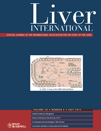
LIVER INTERNATIONAL
Connecting researchers and practitioners in the fight against liver disease.LIVER INTERNATIONAL, with its ISSN 1478-3223 and E-ISSN 1478-3231, is a prestigious peer-reviewed journal published by Wiley in the United Kingdom. Established in 2003, it focuses on advancing the field of hepatology, covering a broad spectrum of topics including liver disease, hepatocellular carcinoma, and transplantation. Ranking #10 out of 82 in the Scopus category for Medicine - Hepatology and boasting a remarkable 88th percentile, LIVER INTERNATIONAL has secured its reputation as a leading journal, recognized as Q1 in the 2023 category quartiles. The journal emphasizes accessibility, offering an open access option to ensure that critical research findings reach a wider audience. By facilitating the dissemination of high-quality research, LIVER INTERNATIONAL plays a vital role in shaping contemporary hepatological discourse and bridging academic inquiry with clinical practice, making it an essential resource for researchers, healthcare professionals, and students alike.
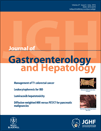
JOURNAL OF GASTROENTEROLOGY AND HEPATOLOGY
Pioneering research for a healthier digestive future.Welcome to the JOURNAL OF GASTROENTEROLOGY AND HEPATOLOGY, an esteemed publication in the field of gastroenterology and hepatology, proudly published by WILEY. Established in 1986, this journal serves as a crucial platform for researchers, healthcare professionals, and students, presenting groundbreaking research and comprehensive reviews that drive advances in understanding and treating gastrointestinal and liver diseases. With a strong reputation evidenced by its Q1 ranking in gastroenterology and Q2 ranking in hepatology, this journal ranks impressively in the Scopus metrics - positioned at #22 out of 167 in gastroenterology and #21 out of 82 in hepatology, reflecting its contribution to scholarly excellence. Although it does not offer open access options, the journal’s rich archive and diverse topics make it indispensable for those dedicated to improving patient outcomes in these critical areas of medicine. Whether you are a seasoned researcher or an aspiring medical professional, engaging with this journal will keep you at the forefront of the latest developments and emerging trends in gastroenterology and hepatology research.

Frontline Gastroenterology
Bridging Research and Practice in Digestive DisordersFrontline Gastroenterology is a leading academic journal published by the BMJ Publishing Group that plays a vital role in advancing the field of gastroenterology and hepatology. Established in 2013, this prestigious journal has established itself as a significant resource for researchers, healthcare professionals, and students alike, maintaining a commendable impact factor and consistently achieving a Q2 ranking in both gastroenterology and hepatology categories as of 2023. With its focus on disseminating high-quality, peer-reviewed research, Frontline Gastroenterology covers a wide scope of topics pertinent to the understanding, diagnosis, and treatment of gastrointestinal and liver diseases. Although it does not offer Open Access options, its content is accessible through various institutional and personal subscriptions, ensuring that critical findings reach an international audience. As the journal continues to converge into the future, it remains dedicated to fostering innovation and dialogue in gastroenterological sciences.
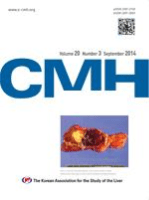
Clinical and Molecular Hepatology
Pioneering insights in hepatology and molecular biology.Clinical and Molecular Hepatology, published by the Korean Association for the Study of Liver, stands at the forefront of hepatology, offering a significant platform for research and innovation in liver diseases. Established in 1995 as an open access journal, it aims to disseminate high-quality research that spans the fields of hepatology, molecular biology, and medicine. With an impressive impact factor ranking it in the Q1 category for 2023 in both Hepatology and Molecular Biology, the journal facilitates a rich exchange of knowledge among professionals, researchers, and students globally. With its dedicated coverage from 2012 to 2024 and exceptional Scopus rankings placing it within the top 10% of journals in its field, Clinical and Molecular Hepatology is an indispensable resource for advancing the understanding and treatment of liver conditions. Located in Seoul, South Korea, the journal emphasizes rigorous peer review and is committed to enhancing clinical practice and molecular research, making it an ideal venue for groundbreaking studies in liver health.

Hepatology Forum
Advancing liver health through innovative research.Hepatology Forum is an esteemed journal dedicated to disseminating cutting-edge research and insights in the fields of gastroenterology and hepatology. Published by KARE PUBL in Turkey, this journal serves as a vital platform for researchers, clinicians, and healthcare professionals aiming to advance their knowledge and practices related to liver diseases and gastrointestinal disorders. With an ISSN of 1307-5888 and an E-ISSN of 2757-7392, it features peer-reviewed articles that encompass a wide range of topics from basic research to clinical applications. Although categorized in the Q3 quartile for both gastroenterology and hepatology in 2023, Hepatology Forum continues to show significant potential for growth and impact, as evidenced by its Scopus rankings. Through its commitment to open scientific exchange, the journal not only facilitates the sharing of innovative methodologies and findings but also fosters networking among professionals in the field. As it converges through the years from 2020 to 2024, Hepatology Forum remains an important resource for the advancement of liver health and diseases, appealing to both established experts and emerging scholars alike.
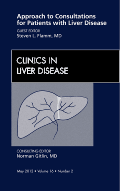
Clinics in Liver Disease
Elevating standards in the study of liver diseases.Clinics in Liver Disease is an esteemed peer-reviewed journal published by W B Saunders Co-Elsevier Inc, dedicated to advancing the field of hepatology. Established in 1997 and covering a broad range of topics within liver disease research, this journal serves as a vital resource for researchers, clinicians, and students engaged in the study of liver health and diseases. With a commendable impact factor placing it within the Q2 category in Hepatology and ranking #32 out of 82 in the Scopus classifications, it consistently disseminates high-quality research and clinical insights. The journal’s commitment to promoting understanding and management of liver diseases is reflected in its rigorous editorial standards and comprehensive review processes. Although not an open-access publication, Clinics in Liver Disease offers subscription options that ensure accessibility to up-to-date research and reviews critical for both academic and clinical success.
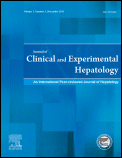
Journal of Clinical and Experimental Hepatology
Exploring the frontiers of hepatology for a healthier tomorrow.The Journal of Clinical and Experimental Hepatology, published by Elsevier - Division Reed Elsevier India Pvt Ltd, is a premier platform dedicated to advancing the field of hepatology. With an ISSN of 0973-6883 and an E-ISSN of 2213-3453, this journal has gained recognition for its impactful contributions to both clinical practice and scientific research in the domain of liver health. Ranking in the Q2 quartile for Hepatology in 2023 and positioned at 33rd out of 82 in Scopus’s Hepatology category, it reflects a robust impact factor and a commitment to publishing high-quality, peer-reviewed articles. Researchers, clinicians, and students can engage with a wealth of open-access content covering the latest advancements, challenges, and insights in hepatology, as the journal aims to disseminate knowledge from 2011 through 2025. Join the community of experts as we explore critical developments in the understanding and treatment of liver diseases.

Gut and Liver
Pioneering research for a healthier tomorrow.Gut and Liver is a prestigious peer-reviewed journal dedicated to advancing the fields of Gastroenterology and Hepatology. Published by the EDITORIAL OFFICE GUT & LIVER in South Korea, this Open Access journal has been disseminating valuable research findings since 2007, making critical knowledge accessible to a global audience. With an impressive 2023 impact factor that places it in Q1 rank in both Gastroenterology (#28/167) and Hepatology (#22/82), it is recognized as a leader in the medical domain. The journal covers diverse topics, including innovative therapeutic strategies, clinical practices, and groundbreaking research in liver diseases and gastrointestinal disorders, thereby playing a vital role in improving patient care and outcomes. Researchers, healthcare professionals, and students can benefit from the journal's wealth of information, designed to foster collaboration and spark new ideas within the scientific community. For further engagement with current research, readers can access issues from 2009 to 2024 and stay updated on the latest advancements in the field.